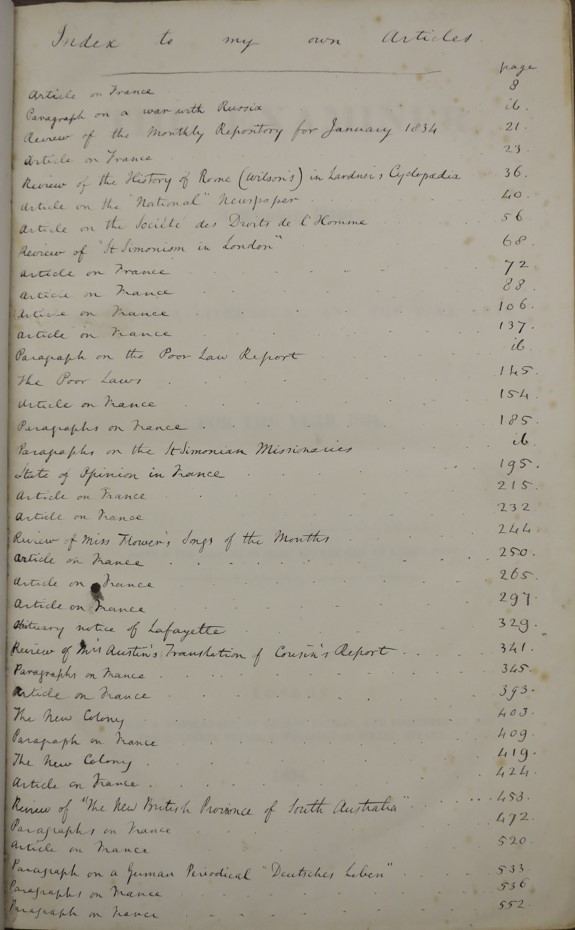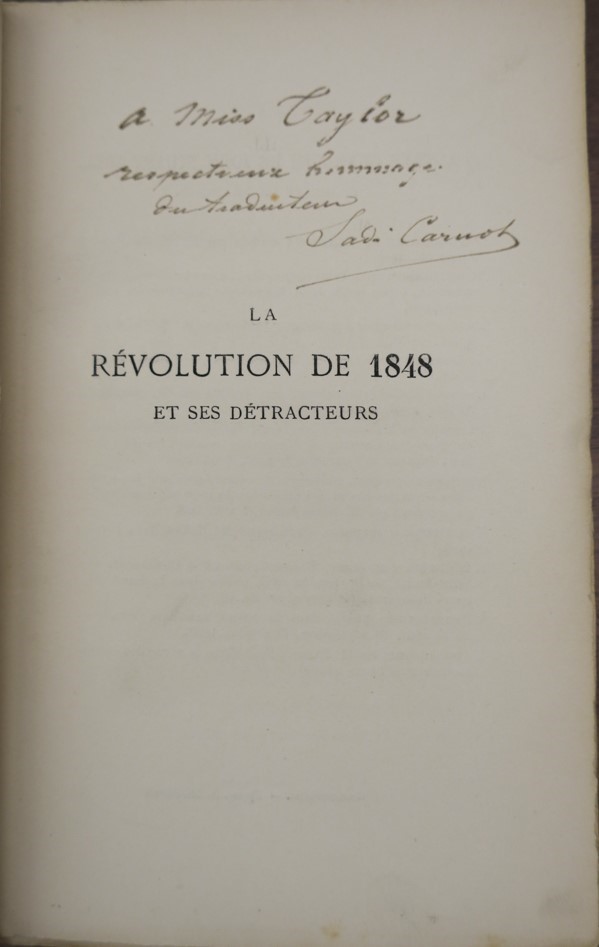I am pleased to announce a fresh upload of data to Mill Marginalia Online. The roughly 2500 new examples of marginalia include all those found in the works of both James and John Stuart Mill. Most of these were clearly made by JSM himself, with an eye towards future republication, whether in Dissertations and Discussions or in subsequent editions of A System of Logic or Principles of Political Economy. Although nearly all are accurately noted in the University of Toronto Press’s edition of the Collected Works, being able to see Mill’s careful revision of his own prose in his own hand lends a certain immediacy and vitality to these moments of textual history.
The front flyleaves of bound volumes of The Examiner from 1831, 1832, 1833, and 1834 provide a particularly clear example of Mill’s curatorial impulses towards his own publications, written in his most legible hand. The following appears in the 1834 volume:

Obviously proud of his relatively early work in the newspaper, Mill has gone out of his way to record every paragraph, notice, and article that he contributed. Some of the items listed seemed to him significant enough to revisit in the margins, and this latest set of images captures every copyedit, revision, renumbering, and doodle that he made.
Also present are translations of Mill’s work in French, Italian, and German, most with inscriptions from their respective editors. These include volumes received after Mill’s death, at which point the inscriptions shifted their addressee to Helen Taylor, Mill’s stepdaughter, late-career amanuensis, and guardian of his intellectual legacy. See, for instance, the half-title page of Said Carnot’s 1875 French translation of La Révolution de 1848 et ses Détractures:

Most of the pages in this book remain uncut, indicating that for all Carnot’s “respectful homage,” Helen Taylor did not read it. She did, however, preserve it among Mill’s books, making it available for digitization today.
My thanks to Patrick Motley for his perseverance in uploading this new material, to Riley Hines for her meticulousness in looking over the data, to Kaitlin Wright for making the original transcriptions, and to everyone involved with the project for their patience and good humor in the midst of global anxiety.
—Albert Pionke, Project Director